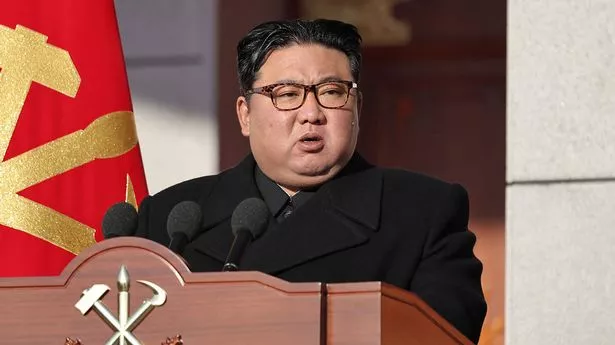North Korea today test-fired at least one unidentified projectile as it continues its weapons demonstrations ahead of Donald Trump’s return to the White House.
South Korea's military says North Korea fired the missile towards its eastern waters but it wasn’t immediately clear how far the weapon flew. It was North Korea’s second launch event of 2025, following a ballistic launch last week.
The first test, which happened on January 6, was a new hypersonic intermediate-range missile designed to strike remote targets in the Pacific, North Korea said. It led to Kim Jong-un unveiling the country's largest-ever warship, equipped with a cruise missile system. The leader vowed to further expand his collection of nuclear-capable weapons to counter rival nations at the start of the year.
And now, with Trump about to be inaugurated again, Jong-un has threatened to implement the "toughest" anti-US policy in his tenure. This is despite North Korea's torrid 2024 for weapons testing, which saw it demonstrate solid-fuel intercontinental ballistic missiles among other systems.
Various shorter-range missiles tested last year were designed to overwhelm missile defences in South Korea, it is understood. There are concerns that North Korea's military capabilities could advance further through technology transfers from Russia, as the two countries align over the war in Ukraine.
At a year-end political conference, Jong-un blasted Joe Biden administration’s efforts to strengthen security cooperation with Seoul and Tokyo, which he described as a “nuclear military bloc for aggression.”
North Korean state media did not specify Jong-un’s policy plans or mention any specific comments about Trump. During his first term as president, Trump met Jong-un three times for talks on the North’s nuclear programme.
Even if Trump returns to the White House, a quick resumption of diplomacy with North Korea could be unlikely. Jong-un’s strengthened position — built on his expanded nuclear arsenal, deepening alliance with Russia and the weakening enforcement of US international sanctions — presents new challenges to resolving the nuclear standoff, experts say.
